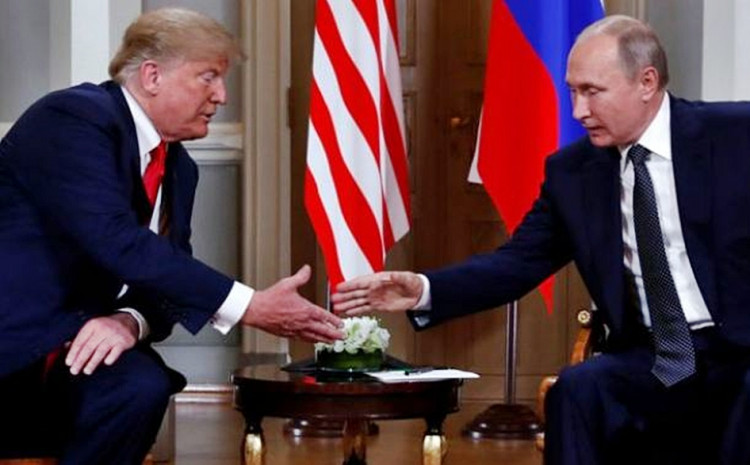The Trump administration is resisting the inclusion of the term "Russian aggression" in a planned G7 statement marking the third anniversary of Russia's full-scale invasion of Ukraine, a position that has raised concerns among Western officials about U.S. commitment to supporting Kyiv. According to officials cited by the Financial Times, the administration is instead advocating for the conflict to be referred to as the "Ukraine conflict", reflecting a broader shift in U.S. rhetoric and strategy under President Donald Trump.
Western officials warn that this linguistic change threatens G7 unity, particularly as Ukrainian President Volodymyr Zelensky has yet to confirm his participation in the summit. Since 2022, G7 leaders have consistently labeled Russia as the aggressor in official statements, but U.S. representatives now oppose such phrasing, marking a significant break from the Biden administration's stance.
The shift in rhetoric aligns with Trump's recent public criticism of Zelensky, whom he has accused of delaying peace negotiations and contributing to the continuation of the war. Trump has also attacked Biden's foreign policy, blaming his administration for encouraging Ukraine's NATO ambitions, a move he argues escalated tensions with Moscow and provoked Russian President Vladimir Putin.
In a recent State Department readout of Secretary of State Marco Rubio's meeting with Russian Foreign Minister Sergey Lavrov in Riyadh, U.S. officials twice referred to the situation as a "conflict in Ukraine", omitting previous references to Russian aggression. This change marks a clear departure from Biden-era language, which consistently framed the war as an act of aggression by Russia.
A senior Western official speaking to the Financial Times said, "We are adamant that there must be a distinction made between Russia and Ukraine. They are not the same." The U.S. Embassy in Kyiv has declined to comment on the matter.
The administration's shift in tone has drawn criticism from European leaders, including French Foreign Minister Jean-Noël Barrot, who said that Russia's return to the G7 remains "impossible" due to its ongoing military actions. Barrot added that any reconsideration of Russia's status would require clear commitments from Moscow on Ukraine's security and possible NATO membership.
Trump has repeatedly suggested inviting Russia back into the G7, a move that Western allies have largely rejected. Russia was expelled from the group in 2014 following its annexation of Crimea. Trump's position has fueled concerns that a second term could see a softening of U.S. policy toward Moscow, potentially affecting military aid and diplomatic pressure on Russia.
The G7 statement, which is expected to be finalized ahead of the anniversary of the invasion, will test the extent of the U.S. administration's willingness to align with its allies on Ukraine. For Kyiv, the language used in the statement carries symbolic and strategic importance, as it seeks continued Western support in its war effort against Russia.






